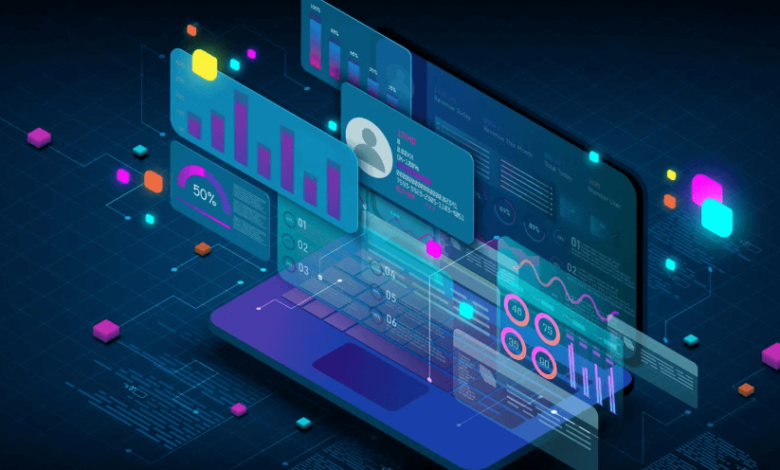The Impact of Real-Time Analytics on Data Management Platforms

In today’s data-driven world, businesses rely on data management platforms (DMPs) to handle vast amounts of information. With the rapid pace of change in industries and markets, the need for real-time analytics has become critical to staying competitive. Real-time data analytics refers to the ability to analyze data as it is generated, providing businesses with immediate insights to make timely decisions. This capability, when integrated into data management platforms, is transforming how organizations manage data, optimize operations, and drive business strategy.
This blog will explore the impact of real-time analytics on data management platforms, discussing how it enhances decision-making, improves operational efficiency, ensures regulatory compliance, and supports sustainability goals through tools like top ESG software.
What is Real-Time Analytics?
Real-time analytics is the process of analyzing data instantly as it enters the system, without waiting for batch processing or delays. It involves continuous monitoring of incoming data and generating insights that can be acted upon immediately. This differs from traditional analytics, where data is collected and analyzed in batches at specific intervals, often after the fact. With real-time analytics, businesses can react to events as they happen, improving agility and responsiveness.
See also: Managed IT Services: Why Outsourcing IT Support is a Smart Business Decision
1. Enhancing Decision-Making with Timely Insights
One of the most significant impacts of real-time analytics on data management platforms is its ability to provide instant insights that drive informed decision-making. When businesses have access to up-to-the-minute data, they can make decisions based on the latest trends, consumer behavior, and market conditions. This is particularly crucial in fast-moving industries where timely actions can lead to a competitive edge.
For example, a company using real-time analytics on customer behavior data can identify changes in preferences and adapt their offerings accordingly. This proactive approach allows businesses to adjust marketing strategies, product inventories, or even operational processes in real-time, ensuring they remain responsive to customer needs.
In addition, integrating top ESG software with real-time analytics within data management platforms helps businesses monitor and improve their sustainability initiatives. Companies can instantly track key sustainability metrics such as energy consumption, waste generation, and carbon emissions, enabling them to adjust operations immediately to meet environmental targets.
2. Improving Operational Efficiency
Real-time analytics within data management platforms allows businesses to optimize their operations by monitoring processes in real-time. This capability leads to better resource allocation, faster problem identification, and more effective troubleshooting. For instance, by continuously analyzing operational data, companies can identify bottlenecks in production lines, inefficiencies in supply chains, or areas where costs can be reduced.
With best data management tools, organizations can automatically flag anomalies or potential issues as soon as they arise. If a machine malfunctions or a supply chain disruption occurs, the system can notify the relevant team immediately, allowing for quick action to minimize downtime and losses.
For example, real-time data analytics can be used to track the performance of assets in manufacturing plants. By continuously monitoring equipment conditions, predictive maintenance algorithms can alert operators about potential failures, allowing for repairs to be scheduled before an actual breakdown occurs.
3. Strengthening Regulatory Compliance and Reporting
As businesses face increasing scrutiny from regulators, especially in areas related to data privacy and sustainability, the ability to track compliance in real-time is becoming more important. Real-time analytics in data management platforms can help ensure that organizations meet regulatory requirements by continuously monitoring relevant data and providing instant feedback on compliance status.
For businesses concerned with environmental, social, and governance (ESG) reporting, integrating top ESG software with real-time analytics can significantly enhance sustainability efforts. Companies can track their carbon footprint, waste levels, and resource usage in real time, ensuring they are consistently meeting environmental standards. This is particularly important for companies that are subject to evolving regulations and are required to report their ESG performance regularly.
Real-time ESG data tracking also enables companies to provide stakeholders, including investors and regulators, with up-to-date information on sustainability initiatives, boosting transparency and trust.
4. Enabling Better Customer Engagement
Real-time analytics helps companies better understand and engage with customers by providing instant feedback on their interactions. By analyzing customer data in real time, businesses can personalize experiences, optimize marketing campaigns, and improve customer service.
For instance, real-time data from a company’s website or mobile app can reveal which products customers are browsing, what questions they have, and where they may be encountering obstacles in their purchase journey. With these insights, businesses can make immediate adjustments to improve the user experience—such as offering personalized recommendations or addressing customer concerns in real-time.
By integrating top ESG software into this framework, companies can also cater to customer preferences related to sustainability. For example, if a customer expresses interest in eco-friendly products, businesses can highlight sustainable options in their recommendations, aligning with the consumer’s values and improving customer satisfaction.
5. Supporting Strategic and Sustainability Goals
Real-time analytics also empowers businesses to monitor and achieve their long-term strategic and sustainability goals. Data management platforms integrated with real-time analytics and top ESG software allow companies to track progress toward their sustainability initiatives in real time, ensuring they remain on track to meet goals such as reducing carbon emissions, improving waste management, or sourcing materials responsibly.
For instance, if a company’s goal is to reduce energy consumption, real-time analytics can monitor energy usage at all levels of the operation, from factories to office buildings. Any spikes in energy use can be flagged immediately, and corrective actions can be taken quickly, minimizing waste and maximizing efficiency.
Furthermore, businesses can leverage real-time data analytics to identify new opportunities for innovation. Whether it’s improving product designs to be more sustainable or identifying market trends that support a green transition, real-time analytics provide valuable insights that can drive innovation in sustainability practices.
Conclusion
The integration of real-time analytics into data management platforms has a profound impact on business operations. By providing up-to-the-minute insights, businesses can enhance decision-making, improve operational efficiency, ensure compliance, and better engage with customers. Real-time data tracking is especially powerful when paired with top ESG software, as it enables organizations to monitor and improve their sustainability efforts while meeting regulatory demands.
As businesses continue to adapt to rapidly changing environments, the ability to manage and analyze data in real time will be a critical factor in staying competitive. Whether it’s optimizing internal processes or achieving sustainability goals, the power of real-time analytics is transforming how companies use data, ultimately leading to more efficient, informed, and responsible business practices.







